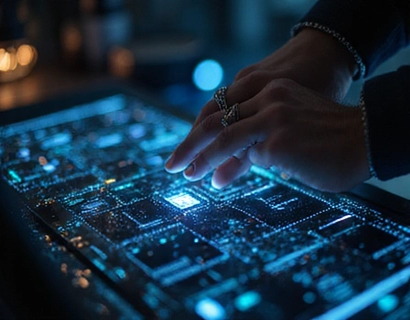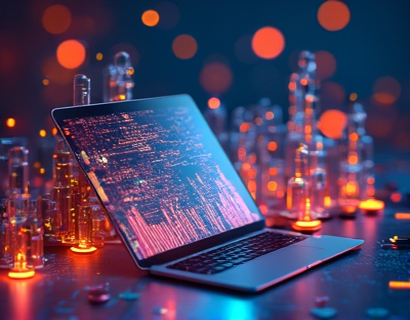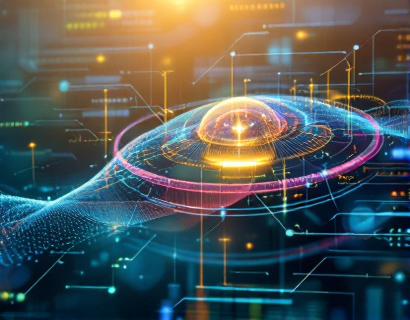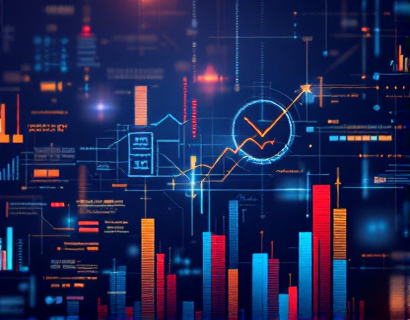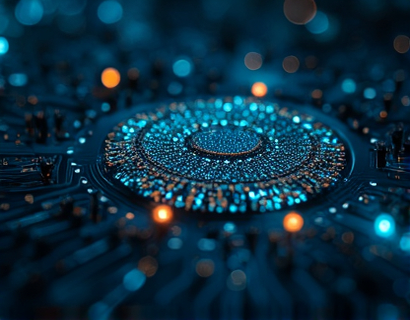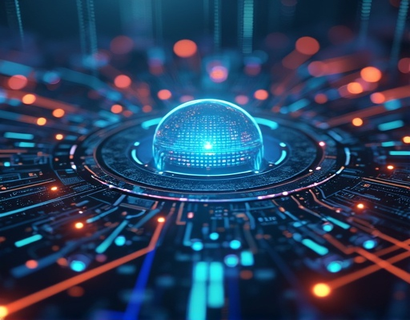AI and Crypto: A Synergistic Force Reshaping Digital Experiences
The intersection of artificial intelligence and cryptocurrency is giving rise to a new era of digital transformation, where the boundaries of technology are being redefined. This fusion is not just about combining two advanced fields but creating a synergy that enhances user experiences, secures transactions, and opens up new possibilities in the digital realm. As tech enthusiasts and innovators, understanding this integration is crucial for anyone looking to stay ahead in the rapidly evolving tech landscape.
Understanding the Basics: AI and Cryptocurrency
Artificial intelligence, or AI, refers to the simulation of human intelligence processes by machines, particularly computer systems. These processes include learning, reasoning, and self-correction. AI technologies encompass a broad range of applications, from simple data analysis to complex decision-making systems.
Cryptocurrency, on the other hand, is a digital or virtual currency that uses cryptography for security. It operates on a decentralized network, typically a blockchain, which ensures transparency and immutability of transactions. Bitcoin, launched in 2009, is the most well-known cryptocurrency, but thousands of others have emerged, each with unique features and purposes.
The combination of AI and cryptocurrency is particularly potent because AI can enhance the functionality, security, and user experience of blockchain-based systems. Conversely, the decentralized and secure nature of cryptocurrency can provide a robust framework for AI applications, especially those requiring high levels of data integrity and privacy.
Enhancing Security with AI
One of the primary benefits of integrating AI with cryptocurrency is the significant improvement in security measures. Traditional cybersecurity methods often struggle with the evolving tactics of cybercriminals. AI, however, can analyze vast amounts of data in real-time, identifying patterns and anomalies that indicate potential threats.
For instance, AI-driven systems can monitor blockchain networks for suspicious activities, such as unusual transaction patterns or attempts at double-spending. Machine learning algorithms can be trained to recognize these patterns and automatically trigger alerts or enforce preventive measures. This proactive approach to security not only protects users' assets but also builds trust in cryptocurrency as a reliable and secure form of digital currency.
Moreover, AI can enhance the security of private keys and wallet management. Biometric authentication, powered by AI, can provide a more secure and convenient way to access cryptocurrency wallets. Face recognition, fingerprint scanning, and even behavioral biometrics can be integrated to ensure that only authorized users can access sensitive information.
Optimizing Blockchain Performance with AI
Blockchain technology, while revolutionary, faces challenges related to scalability and efficiency. Transaction processing times can be slow, and the network can become congested, leading to higher transaction fees. AI can play a crucial role in optimizing these aspects of blockchain technology.
AI algorithms can be used to predict network congestion and dynamically adjust parameters to improve transaction throughput. For example, smart contracts can be designed to execute transactions during off-peak times or to route transactions through less congested parts of the network. This not only speeds up transaction times but also reduces costs for users.
Additionally, AI can optimize the consensus mechanisms used by blockchain networks. Proof of Work (PoW), while secure, is energy-intensive. AI can help in developing more efficient consensus algorithms, such as Proof of Stake (PoS) or Delegated Proof of Stake (DPoS), by analyzing network data and suggesting improvements. This can lead to more sustainable and environmentally friendly blockchain systems.
Personalized User Experiences through AI
The integration of AI with cryptocurrency is not just about security and performance; it's also about enhancing the user experience. AI can analyze user behavior and preferences to provide personalized recommendations and services within the crypto ecosystem.
For instance, AI-driven platforms can analyze a user's transaction history, investment preferences, and risk tolerance to suggest tailored investment strategies. This personalized approach can help users make more informed decisions and potentially improve their returns. Additionally, AI can power chatbots and virtual assistants that provide 24/7 customer support, answering queries and guiding users through complex crypto operations.
In the realm of decentralized finance (DeFi), AI can facilitate the creation of more user-friendly and accessible financial products. By analyzing market trends and user data, AI can help design financial instruments that meet the specific needs of different user segments, from novice investors to experienced traders.
Smart Contracts and AI: A Powerful Combination
Smart contracts are self-executing contracts with the terms of the agreement directly written into code. They automatically enforce and execute the terms when predefined conditions are met. When combined with AI, smart contracts can become even more powerful and versatile.
AI can enhance the logic and decision-making capabilities of smart contracts. For example, AI algorithms can analyze real-time data from various sources, such as market prices, weather conditions, or social media sentiment, and adjust the terms of a smart contract accordingly. This dynamic adaptability can lead to more efficient and responsive financial and operational processes.
Moreover, AI can help in the development of more complex and sophisticated smart contracts. By leveraging machine learning, developers can create contracts that learn from past transactions and user interactions, continuously improving their functionality and security. This can reduce the risk of errors and vulnerabilities, making smart contracts more reliable and trustworthy.
Decentralized Applications (DApps) and AI
Decentralized applications, or DApps, are applications that run on a blockchain network rather than a centralized server. They offer greater transparency, security, and user control. The integration of AI with DApps can unlock new possibilities and enhance their capabilities.
AI can be used to build more intelligent and interactive DApps. For example, AI-powered predictive analytics can provide users with insights and forecasts based on historical data and real-time trends. In the context of gaming DApps, AI can create more realistic and engaging experiences by generating dynamic content and adaptive challenges.
Healthcare DApps can benefit from AI by offering personalized health recommendations, disease diagnosis, and treatment plans. By analyzing vast amounts of medical data, AI can help users make informed decisions about their health and well-being. Similarly, supply chain DApps can use AI to optimize logistics, predict demand, and ensure transparency at every stage of the process.
Challenges and Considerations
While the integration of AI and cryptocurrency offers numerous benefits, it also presents several challenges that need to be addressed. One of the primary concerns is the regulatory landscape. The crypto space is still largely unregulated, and the addition of AI introduces new layers of complexity. Ensuring compliance with existing regulations and advocating for clear and supportive policies is essential for the sustainable growth of this integration.
Another challenge is the technical complexity involved in combining AI and blockchain technologies. Developers need to possess a deep understanding of both fields to create robust and efficient systems. This requires a skilled workforce and significant investment in research and development.
Privacy is also a critical issue. While AI can enhance security, it also raises concerns about data privacy and the potential misuse of personal information. It is crucial to implement strong privacy protocols and ensure that user data is handled ethically and transparently.
Future Prospects: The Road Ahead
The future of AI and cryptocurrency integration is promising, with numerous potential applications across various industries. As technology continues to advance, we can expect to see more innovative solutions that leverage the strengths of both fields.
In the financial sector, AI-driven trading platforms powered by blockchain can offer more efficient and transparent trading experiences. In the healthcare industry, AI-enhanced DApps can revolutionize patient care and data management. The gaming industry can see the emergence of more immersive and intelligent games, while the Internet of Things (IoT) can benefit from AI-optimized blockchain networks for secure and efficient data exchange.
Moreover, the development of interoperability standards will be crucial for the widespread adoption of AI and cryptocurrency integration. Ensuring that different blockchain platforms and AI systems can work together seamlessly will unlock new possibilities and drive innovation.
In conclusion, the synergy between AI and cryptocurrency is transforming digital experiences, making them more secure, efficient, and personalized. As tech enthusiasts and innovators, embracing this integration is key to staying at the forefront of technological advancements and shaping the future of connected technologies.












